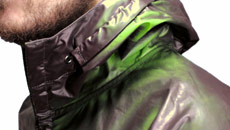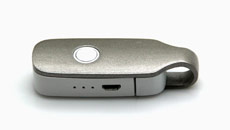The convenient and deficient lithium-ion battery (LIB) that power your tablets and smartphones may soon become a lot safer as scientists have designed a kind of lithium battery component that is far less likely to catch fire and still promises effective performance.
Researchers discovered a new family of solid polymer electrolytes that is both good at conducting lithium ions at room temperature and minimising the risk of fire.
Not only are these materials safer than their liquid counterparts in LIBs, but they could also be used in high-energy lithium-metal batteries, such as promising lithium-sulphur and lithium-air batteries, the researchers claimed.
The danger of LIBs originates with their electrolytes, the substance that allows ions to flow between the electrodes of the battery, explained Lynden Archer of Cornell University in the US.
The electrolyte usually contains a flammable liquid. To minimise this fire hazard, some researchers developed more stable, solid electrolytes.
But although solid electrolytes are less likely to fuel a fire, their ability to transport ions was found to be falling short, especially at room temperature.
The study appeared in the Journal of the American Chemical Society.





